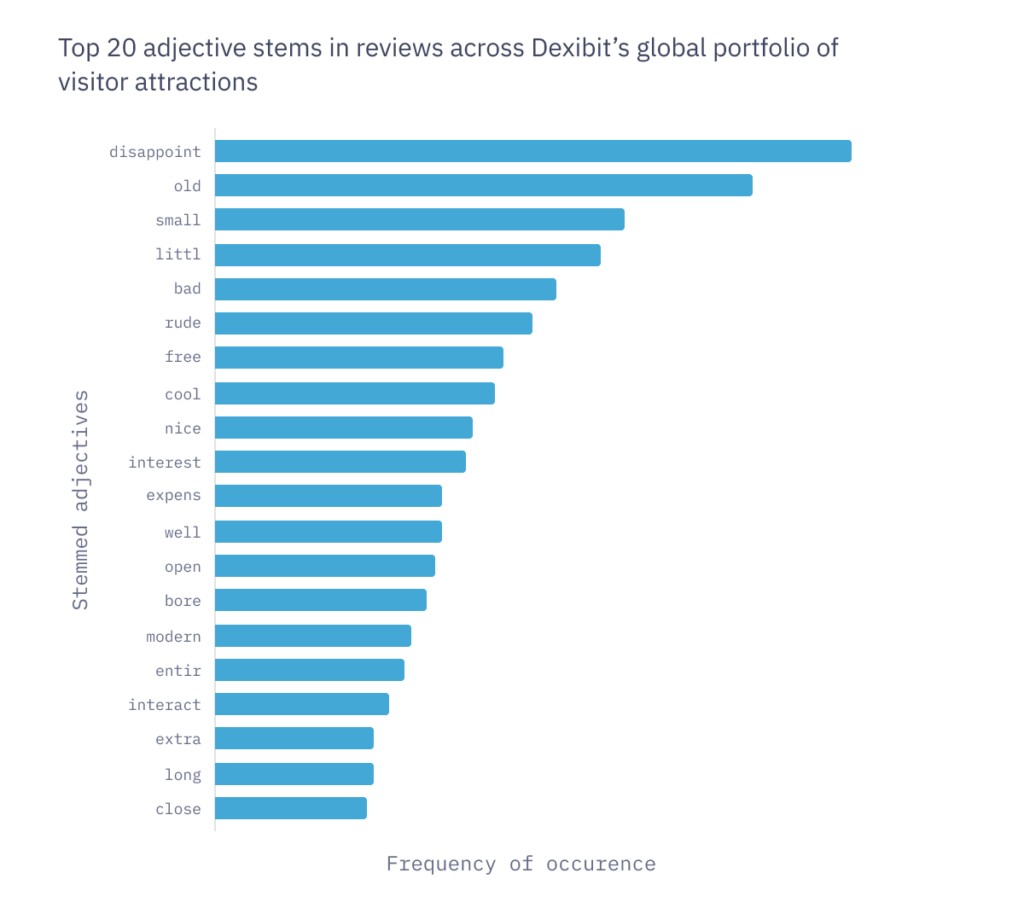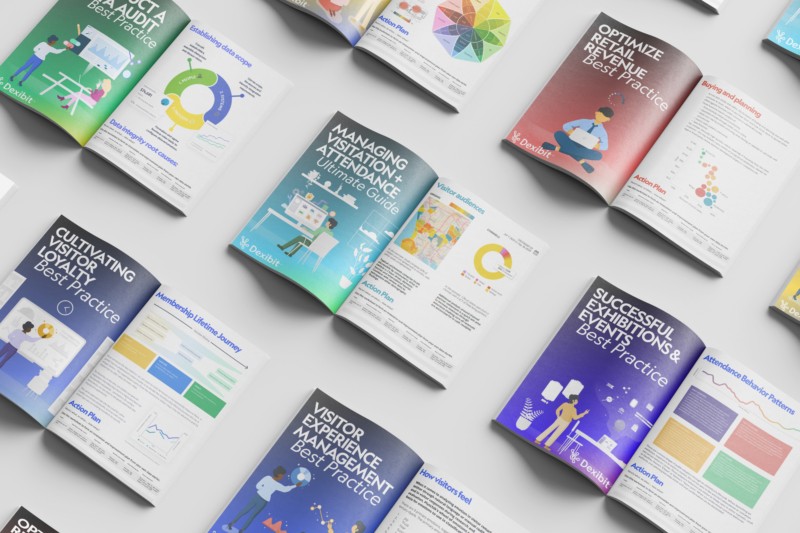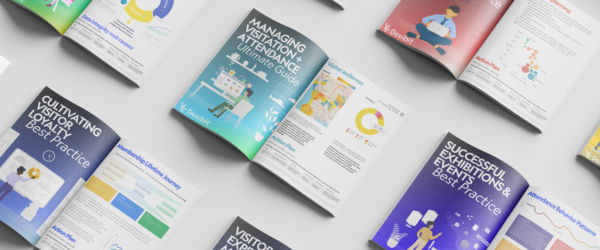DATA: What do visitors complain about?
- In Benchmarks
- Data bits
- 3 min read
Data from Dexibit’s global portfolio of visitor attractions.
Visitor complaints and negative reviews are a goldmine for feedback themes and highly actionable insight to improve guest happiness.
Visitors commonly complain about tickets, children (sometimes directed at school groups) and other people generally, experiences, price and money, plus staff – in that order. Negative reviews of the visitor experience frequently describe it as ‘overpriced’ or ‘minimal’ – for exhibits this is ‘poor’ or ‘tiny’. Visitors use words to describe their review such as ‘old’, ‘disappoint(ed;ment)’, ‘small/little’, ‘bad’, ‘expensive’ and ‘bor(ed;ing)’. They also tend to use words such as ‘cool’ and ‘interest(ed;ing)’ in a negative way – for example, ‘it wasn’t interesting enough’.
When combined with quantitative insight on what topics are appearing most commonly for visitors, individual reviews then provide highly actionable information on improvements to the visitor experience, such as in this example, how visitor expectations regarding exhibitions and closures are set online and at the box office before entry:
“Wish I had looked at the reviews before I took my sons there. ***** was closed and many other ***** ***** were not working. Not happy with the price I paid at all. There was also zero ***** exhibits. Why have pictures of these exhibits and then not have them there? We won’t be back. Also level * was closed. Should of been HALF PRICE”
(venue specifics have been omitted)
A fascinating finding which often surprises some venues is that ‘free’ is a common reference in negative reviews across industry. For example, making some elements of the visitor experience free for some can cause knock on effects for other visitors which are poorly received.
Amongst the top terms, ‘COVID’ and ‘masks’ are five times more frequently referenced in negative reviews (15% combined), likewise ‘staff’ and ‘security’ are also twice more frequently referred to (10% combined). Venues with the lowest ratings had a high proportion of complaints about pricing and capacity issues causing queue wait times and crowding, for example:
“Very unorganized, little direction, overpriced for what was there, the majority of the interactive displays did not operate… A fire alarm went off and the people waiting on the tour were moved away from the building and when they were allowed to come back into the line we had been waiting in for 30 minutes the people that had just gotten into line were allowed to now go to the front of the line and the people that had been waiting the longest were shifted to the rear again. It was a waste of money.”
In their remarks, visitors with negative remarks are more likely to experience disgust, anger, sadness and fear. Interestingly, they still also demonstrate positive emotions too, with trust and joy also making proportionately high appearances. Often, this is because their feedback is balanced with aspects of their experience they still appreciated – the sentiment from their remark can be mixed.
As anyone who has ever written a ‘rant’ after a negative experience would know well, negative reviews were on average 89 letters longer than positive reviews and on average contained 14 more words.
Using Dexibit?
Dexibit uses a form of artificial intelligence called Natural Language Processing (NLP) to provide a first pass of visitor sentiment and key terms from freeform visitor remarks:
- Integrate with your digital reviews (e.g. Google My Business, Facebook), visitor survey system (e.g. Survey Monkey) and/or Net Promoter Score system (e.g. Ask Nicely)
- Alternatively, upload freeform remarks from a manual spreadsheet (e.g. from in person surveys, compliments and complaints or visitor attendant notes)
- Navigate to Insights > Sentiment and choose a channel to review
- Use the query feature to include or exclude terms from your dictionaries

‘Disappoint(ed;ing;ment)’ was the most common adjective for negative remarks, followed by ‘old’ and ‘small’

Victoria Alogna
Lead Data Scientist
Victoria’s data science practice in and passion for machine learning, natural language and measurement comes from a unique perspective into visitor behavior, inspired by hear background in the cognitive and behavioral sciences.
Get insights delivered right to your inbox
Want to learn more about Dexibit?
Talk to one of our expert team about your vision to discover your data strategy and see Dexibit in action.






